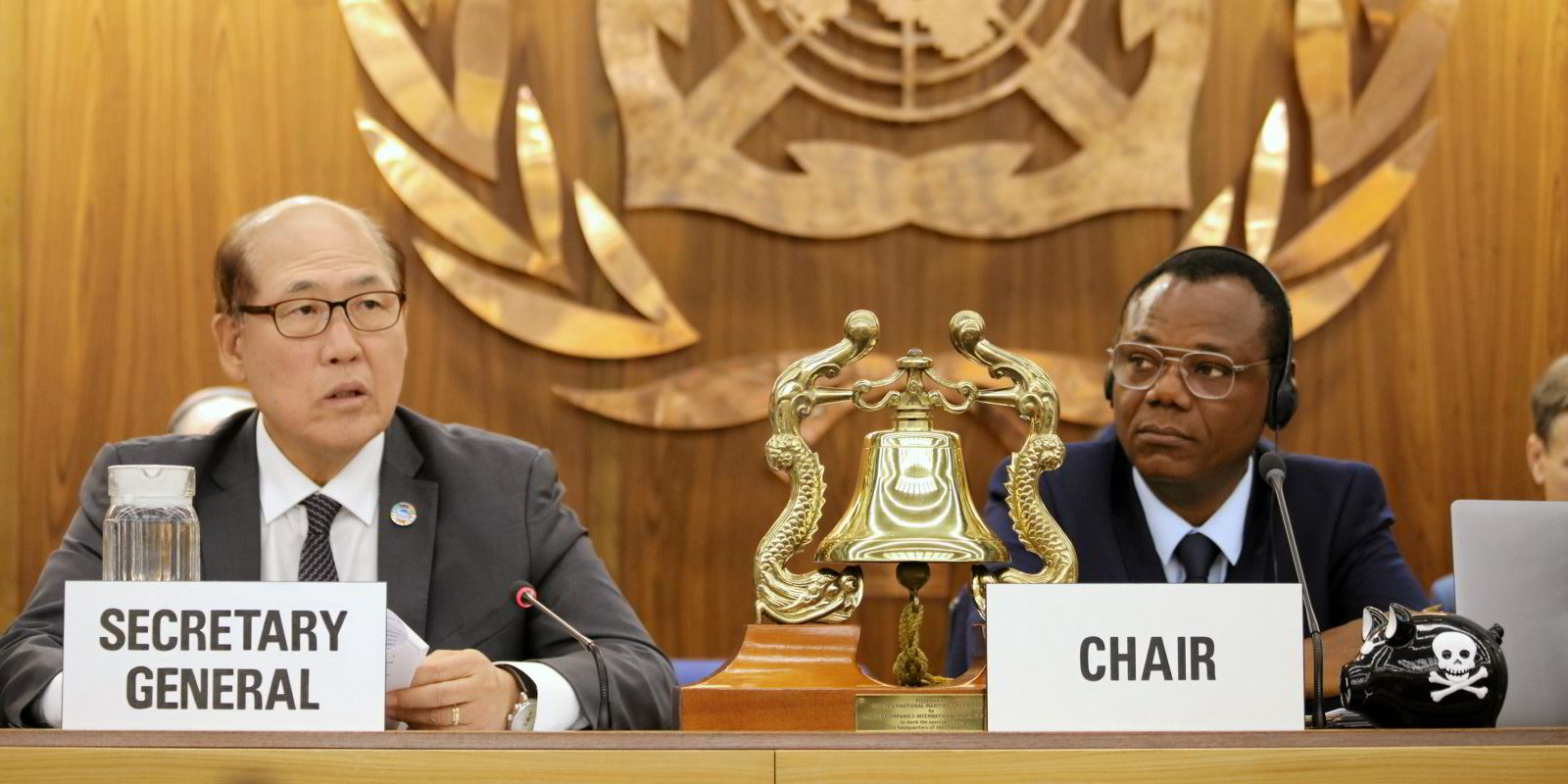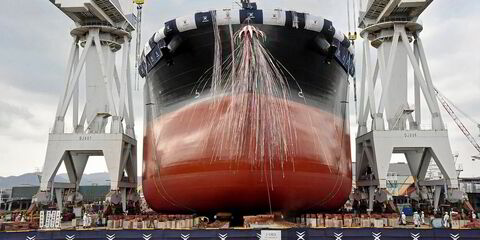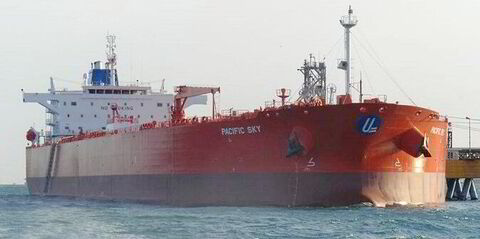Putting a price on greenhouse gas emissions — or “the carbon tax” as the general press tends to dub it — has a way of bursting its way into conversations about this week’s key meeting at the International Maritime Organization.
Yet the United Nations shipping regulator’s Marine Environment Protection Committee (MEPC) is not scheduled to make a decision this week on what is known in IMO speak as the “economic measure”, although it is a part of the discussions.
Instead, the committee is scheduled to revise its greenhouse gas strategy to set new targets for the decades ahead, as well as another document that is much less headline-grabbing: guidelines for the lifecycle analysis of fuels.

And shipping stakeholders are carefully watching whether the revised strategy’s targets, including the proposal for net zero greenhouse gas emissions by 2050 and milestones in the decades leading up to then, will ultimately look at fuels’ full life cycle, or what is known as well-to-wake emissions.
For many, a tank-to-wake calculation of shipping’s emissions, which would look only at the emissions on board ships, would lead to a variety of problems.
Primarily, fuels that have low or no greenhouse gas emissions on board a vessel have emissions upstream, and not counting that will leave no incentive to produce those fuels in a greener way. Then there are biofuels, whose true impact on reducing emissions is only felt on a well-to-wake basis.
Sofia Furstenberg Stott, a partner at Sweden’s Furstenberg Maritime Advisory, told the Green Seas podcast that in order for shipping to get past LNG as the main alternative fuel in shipping, it will be important for the IMO to align the language of lifecycle carbon accounting with the broader energy landscape.
“We cannot afford … to start a new regime that is actually not creating value for the greater good,” he said.
‘Completely perverted’
“It would be completely perverted if we put all these resources in developing new fuels for maritime and at the end of the day, it’s causing damage elsewhere or the total footprint is actually not reducing.”
With more than 100 fuel pathways in the draft guidelines before the MEPC, she and Conor Furstenberg Stott, who is also a partner at the advisory, recently wrote in TradeWinds’ Viewpoint column that certification of the well-to-tank portion of those emissions will be key.
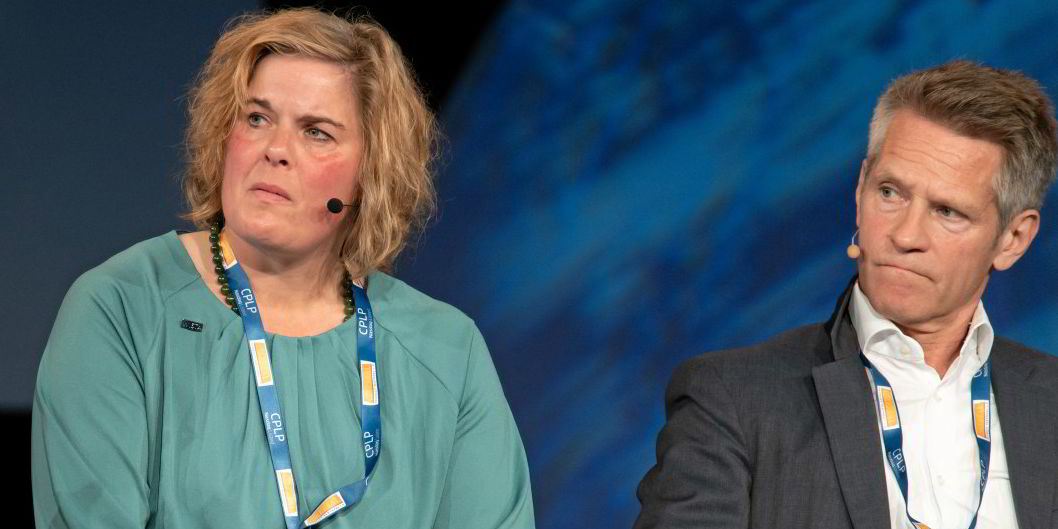
Like a levy on greenhouse gas emissions, the need for accounting for the full life cycle of fuels is an area where industry and environmental groups can agree, although there are certainly important differences in the details of their views.
The International Bunker Industry Association has warned in a submission to the IMO that adopting only a tank-to-wake approach could negatively impact the future marine fuel landscape and could undermine the ambition to phase out greenhouse gas emissions.
SEA-LNG, a lobby group that advocates for LNG as a marine fuel, also called for a full lifecycle approach from well to wake.
On Monday, a group of major shipping companies and ocean freight forwarders signed a statement expressing a commitment to developing “book and claim chain of custody” systems, which are mechanisms to facilitate creating a voluntary market for greenhouse gas insets within shipping. They said such systems would help advance the uptake of zero and near-zero-emission fuels by enabling action while such fuels are still in limited supply and there are still few ships that can use them.
But the companies — including DHL Global Forwarding, Hapag-Lloyd, Norden, Oldendoff Carriers, Kuehne + Nagel, Ocean Network Express and Torvald Klaveness — called on the IMO to provide lifecycle guidelines.
Leading the way
Global Maritime Forum product director Jesse Fahnestock said the signatories will forge ahead even without those guidelines, as cargo owners continue to apply pressure for carbon cuts in shipping.
“If the IMO is signalling that its policy developments have down the same road, then this voluntary market can lead in a much more impactful, scalable way,” he told TradeWinds. “It can actually open up the pathway for the regulated markets to come.”

Samuel Yarrow-Wright, policy manager for global shipping at the Environmental Defense Fund (EDF), described that lifecycle approach as “extremely important”.
That is because it would be “perverse” for the IMO to endorse future fuels such as hydrogen or ammonia as green even if they are produced with coal, natural gas or fuel oil but have zero emissions on board a ship, he said while participating in IMO talks in London.
Shifting emissions to shore
“Because all you’ve done there is shift all the emissions onto shore or into a different sector. That’s not a progressive response, and I genuinely don’t think it’s what anyone here really wants to see in practice,” he said.
Adopting the lifecycle approach would come in at least two parts: finalising the draft guidelines and approving a new greenhouse gas strategy whose targets are based on a well-to-wake perspective rather than tank-to-wake.
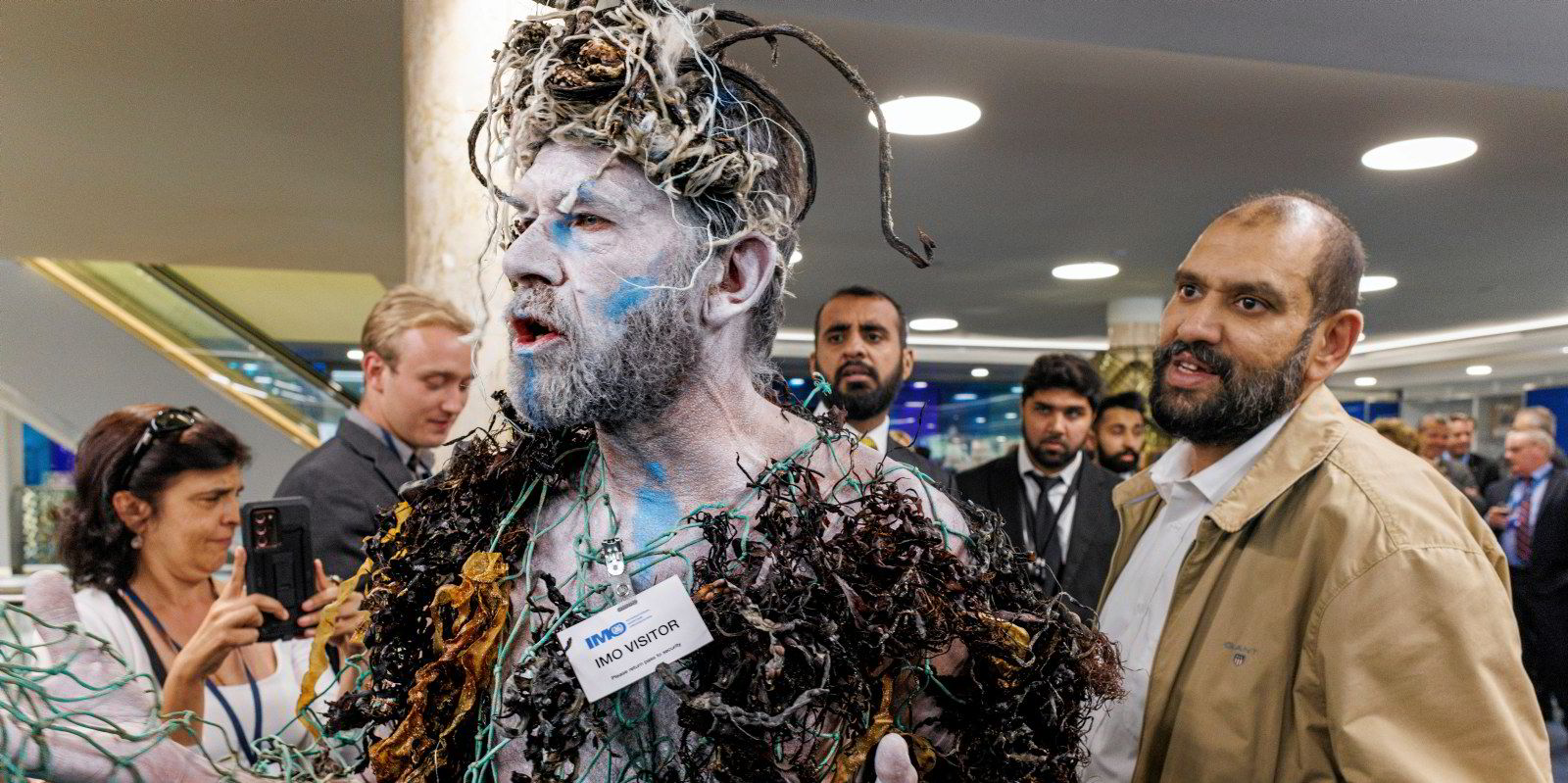
Consultancy UMAS, whose researchers are also academics at University College London’s UCL Energy Institute, said on Friday that a commitment to lifecycle coverage of emissions is among the key undecided details of this week’s meeting.

Most countries appear to be on board with full well-to-wake accounting, even if UMAS said proposed new targets are below a trajectory that would be aligned with stopping temperature rises at 1.5C.
Bryan Comer, a marine programme lead at the non-profit research group International Council on Clean Transportation (ICCT), expressed confidence that the MEPC detailed lifecycle emissions guidelines that are under consideration.
That does not mean that it is perfect.
In the air but not at sea
He said the main thing missing in the guidelines is calculating how different fuel production pathways impact land use. Lifecycle emissions assessments by the UN’s International Civil Aviation Organization factor in the impact of land when fuels are made from agricultural crops, but that is not in the cards for shipping at this point.
“One of the major risks of going forward is trying to protect against fuels that have high indirect land-use change consequences,” he said.
____________
‘Precious years will be wasted’: Concerns mount after IMO draft undershoots Paris Agreement goals
The draft text generated by a working group at the IMO last week is not aligned with halting global temperature rises at 1.5C, according to researchers and environmental groups tracking the negotiations.
Consultancy UMAS said the United Nations shipping regulator made “little headway” at meetings held that closed on Friday in preparation for a critical meeting of the Marine Environment Protection Committee this week.
Ahead of that meeting, several countries and other delegations have been pressing for, in addition to a zero emissions goal in 2050, targets in 2030 and 2040 that track the Science Based Targets initiative’s trajectory for aligning shipping’s decarbonisation with the Paris Agreement goal of capping global warming at 1.5C.
____________
Podcast: Hopes and fears for a crucial IMO meeting on shipping emissions
The Green Seas audio edition spoke to several stakeholders about what they hope to see in the IMO’s ultimate agreement, and what they fear it might contain or omit.
Currently aiming for 50% in cuts by 2050, the MEPC is expected to adopt a target of net zero greenhouse gas emissions by that time, as confirmed by a draft that emerged on Friday.
But the ICCT’s Comer said agreeing to 2050 targets will not be enough. Targets in 2030 and 2040 are also needed.
“I’m losing sleep over the 2030 target,” he told the podcast.
“I think it’s going to be really politically challenging to agree to absolute emissions reductions by 2030, even though it’s probably the most important thing that we need to do to ensure that the sector contributes to achieving the Paris Agreement temperature goals.”
____________
Navigator nearly ‘good to go’ on carbon carrier orders as it targets UK with Bumi Armada
After working on designs for liquefied CO2 carriers for years, London-headquartered Navigator Holdings sees a significant opportunity to put those future ships to work in its own backyard.
Britain is the main target for a joint venture that the shipowner is working to form with Malaysian floating infrastructure company Bumi Armada, as TradeWinds has reported. Dubbed Blujestreak CO2, the new company would offer transportation of CO2 to a floating carbon storage and injection unit that the venture would develop.
And Navigator chief executive Mads Peter Zacho told TradeWinds that his company is, in principle, close to being ready to place an order for liquefied CO2 carriers.
